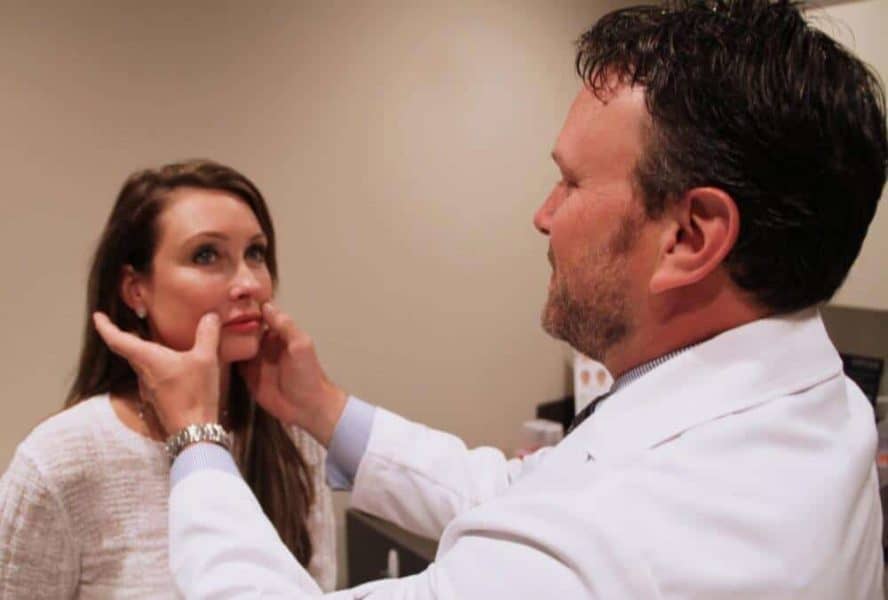Good cosmetic results are an important factor – but not the only factor – differentiating positive versus negative reviews for plastic surgeons on Google, Yelp, and other online review sites, according to a special topic paper in the May issue of Plastic and Reconstructive Surgery®, the official medical journal of the American Society of Plastic Surgeons (ASPS).
Factors such as communication with the surgeon and interactions with office staff also have an impact on whether plastic surgery patients are happy or unhappy, according to the study by ASPS Member Surgeon John Y.S. Kim, MD, of Northwestern University Feinberg School of Medicine and colleagues.
“We found that that patients will write negative reviews without ever having had the surgery,” Dr. Kim comments. “It’s not just the aesthetic outcome but also the patient’s interactions with surgeon and staff that provide the impetus for positive or negative reviews.”
The ‘New Word of Mouth’ – What Factors Influence Plastic Surgeon Ratings?
The researchers analyzed patient ratings of plastic surgeons on three popular review websites: Google, Yelp, and RealSelf, which is dedicated to plastic/cosmetic surgery ratings. The study included more than 1,000 reviews related to breast augmentation surgery in six metropolitan areas: New York, Los Angeles, Chicago, Houston, Philadelphia, and Miami. The analysis focused on the 10 or 20 most-reviewed plastic surgeons in each market.
Overall, 87.5 percent of reviews were positive (4 or 5 stars), while 12.5 percent were negative (1 or 2 stars). Negative reviews were significantly longer than positive reviews. The number of online reviews for breast augmentation rose steadily during the study period (2011 to 2016).
The cosmetic results of breast augmentation seemed to be the most important factor affecting surgeon ratings – nearly 70 percent of positive reviews cited good cosmetic outcomes. Other characteristics mentioned in positive reviews included good bedside manner, friendly/helpful office staff, surgeon expertise, and listening to the patient.
By comparison, 50 percent of negative reviews mentioned disappointment in the cosmetic results. Other contributors to negative reviews included not listening to the patient, lack of surgeon competence, and not acknowledging or taking responsibility for poor results. Cost was infrequently mentioned in good reviews, but more often mentioned in bad reviews.
Many negative reviews – close to 40 percent – were written by patients who did not actually undergo breast augmentation performed by the surgeon they were reviewing. Themes of these reviews included “rudeness” or “curtness” of the surgeon and the brief time of the consultation. “These sentiments stopped the reviewers from proceeding with the surgery but motivated them to leave negative reviews online,” the researchers write.
Based on their analysis, Dr. Kim and colleagues highlight some “critical traits” for patient satisfaction. In addition to good cosmetic results, these included the perception that the surgeon is highly skilled, answered all questions, and listened to the patient.
Other factors were associated with negative reviews but were considered “redeemable traits.” For example, some patients experienced complications but still gave good reviews because they appreciated the proactive follow-up and empathic care provided by the surgeon.
“In the rapidly changing marketplace of plastic surgery, online reviews are rapidly becoming the new ‘word of mouth,’ with significant potential to influence patient referrals,” Dr. Kim and colleagues conclude. “Nuanced understanding of these reviews may allow for development of concomitant surgeon strategies to improve patient satisfaction.”
An accompanying commentary by Dr. David B. Sarwer – a psychologist experienced in working with plastic surgery patients – highlights the “paramount importance” of good patient-provider communication in cosmetic surgery. He writes, “Establishing a strong, compassionate professional relationship at the onset will likely increase patient satisfaction rates and also provide an important foundation of support if an undesired outcome occurs.”


